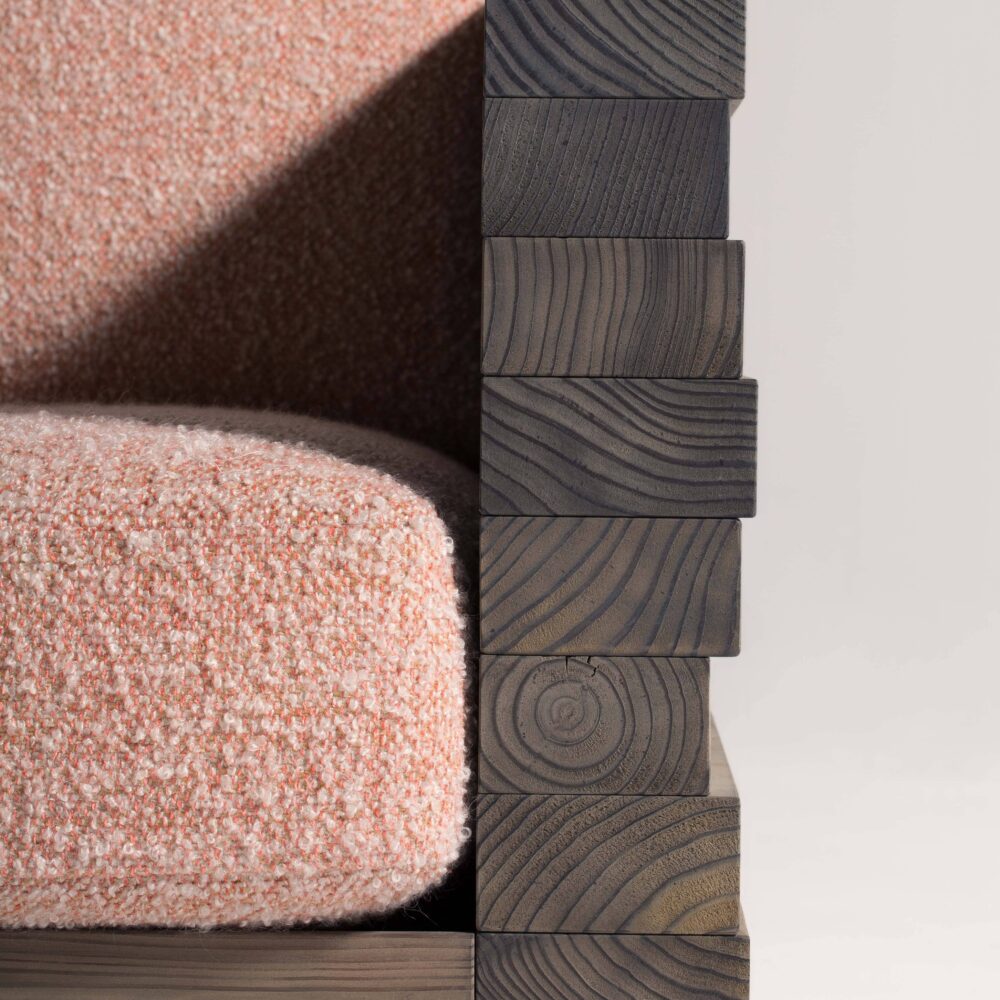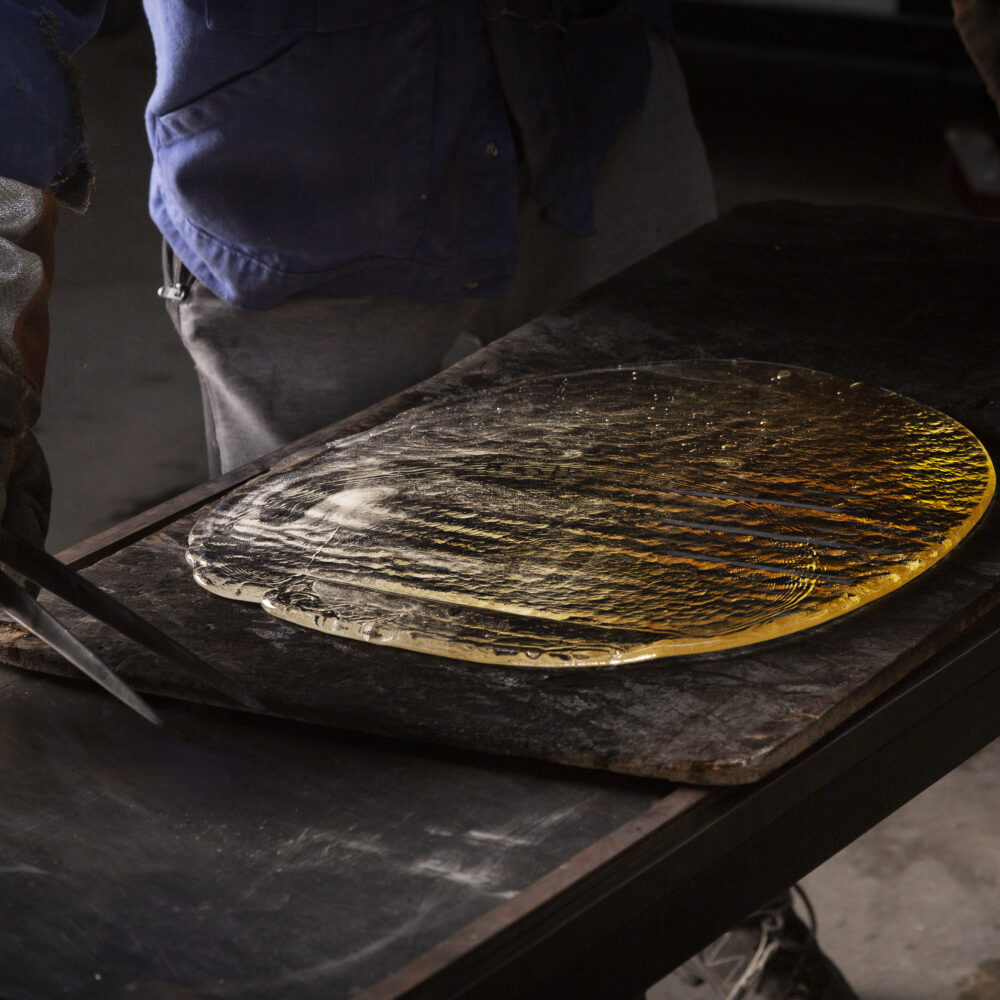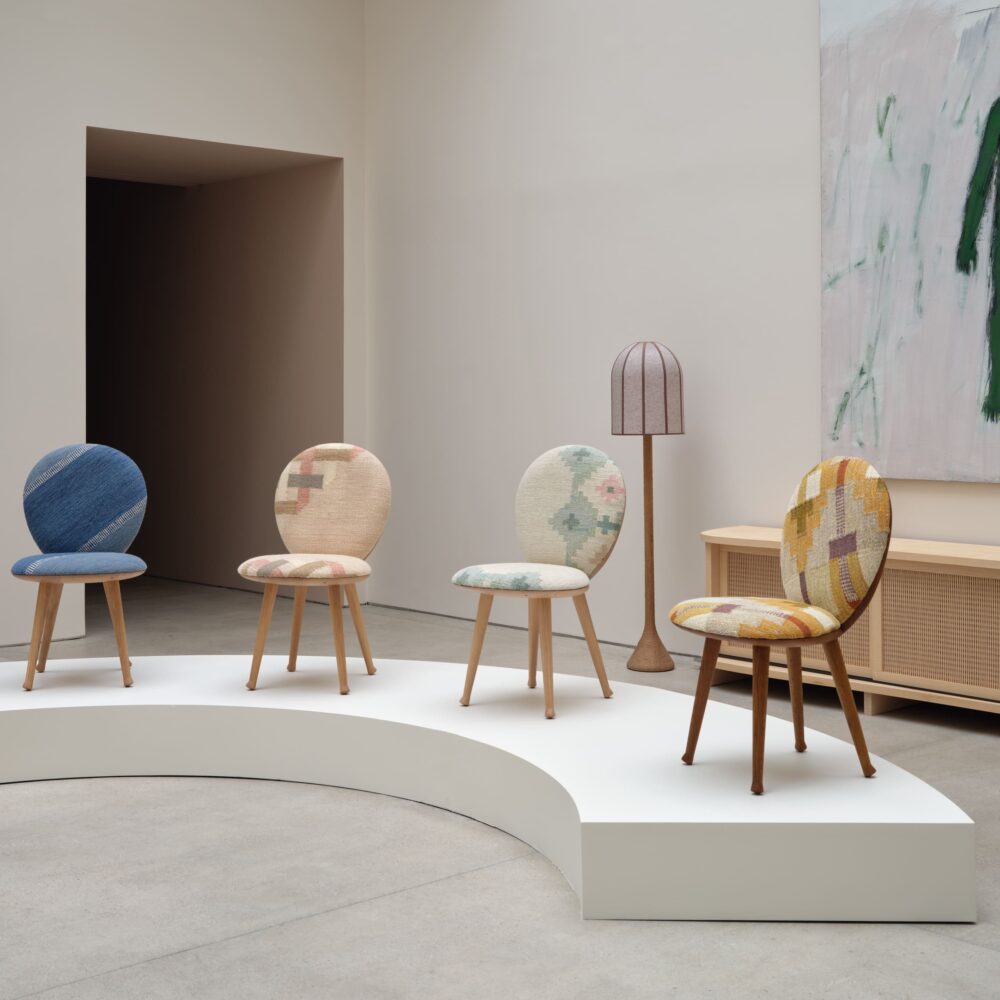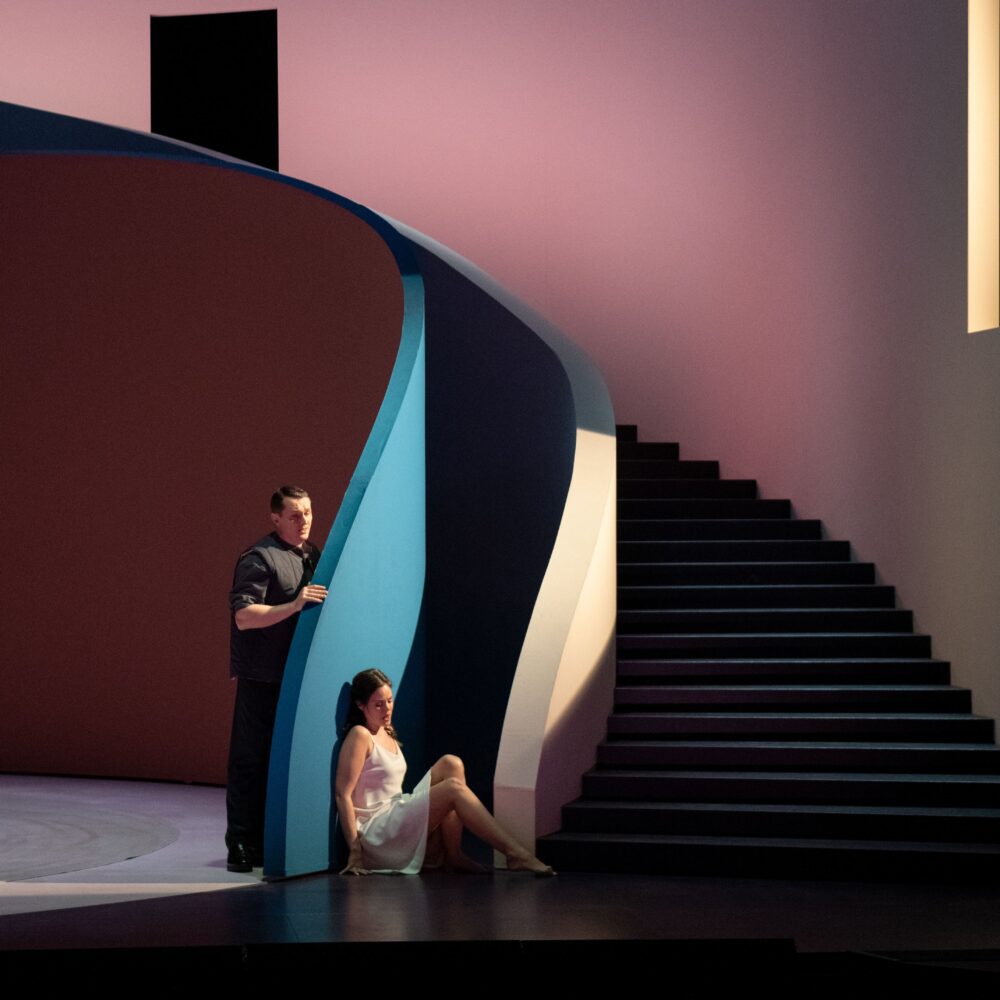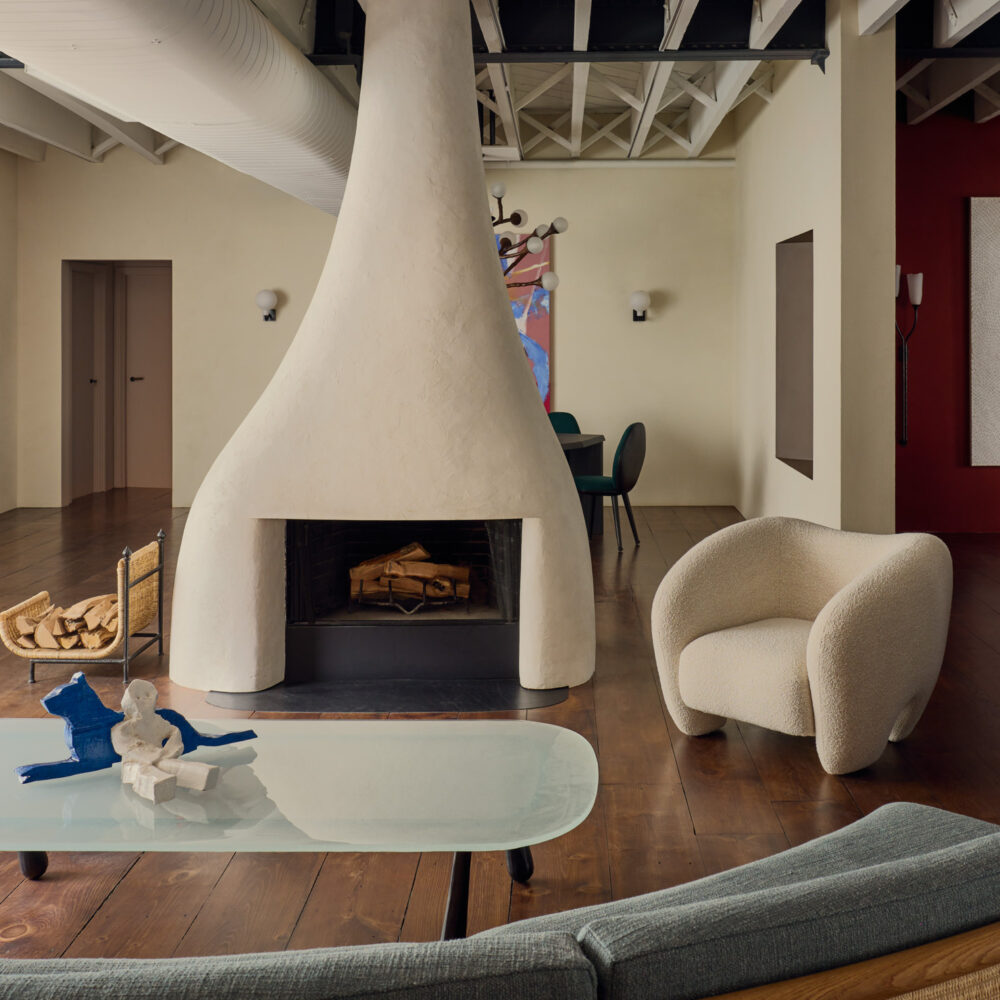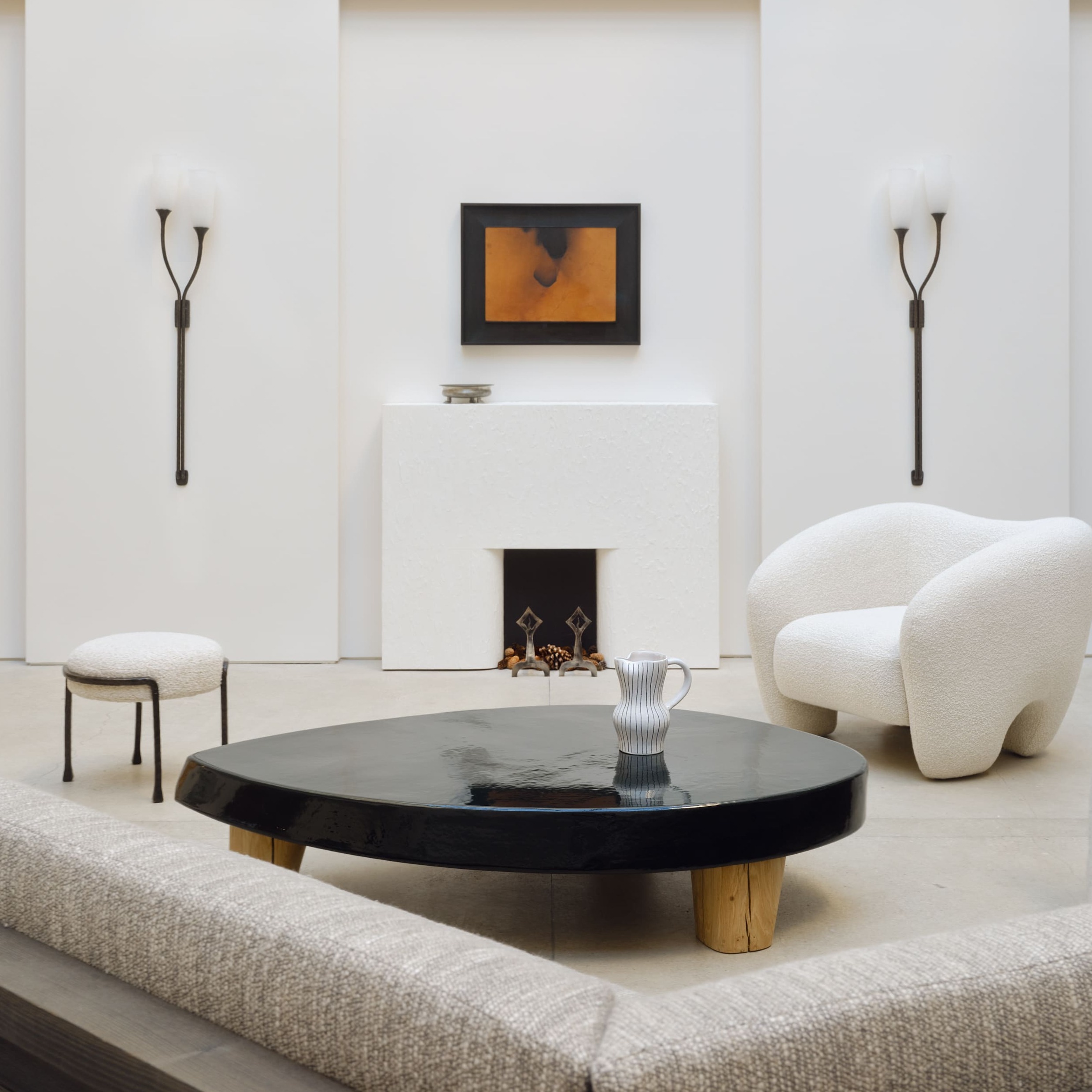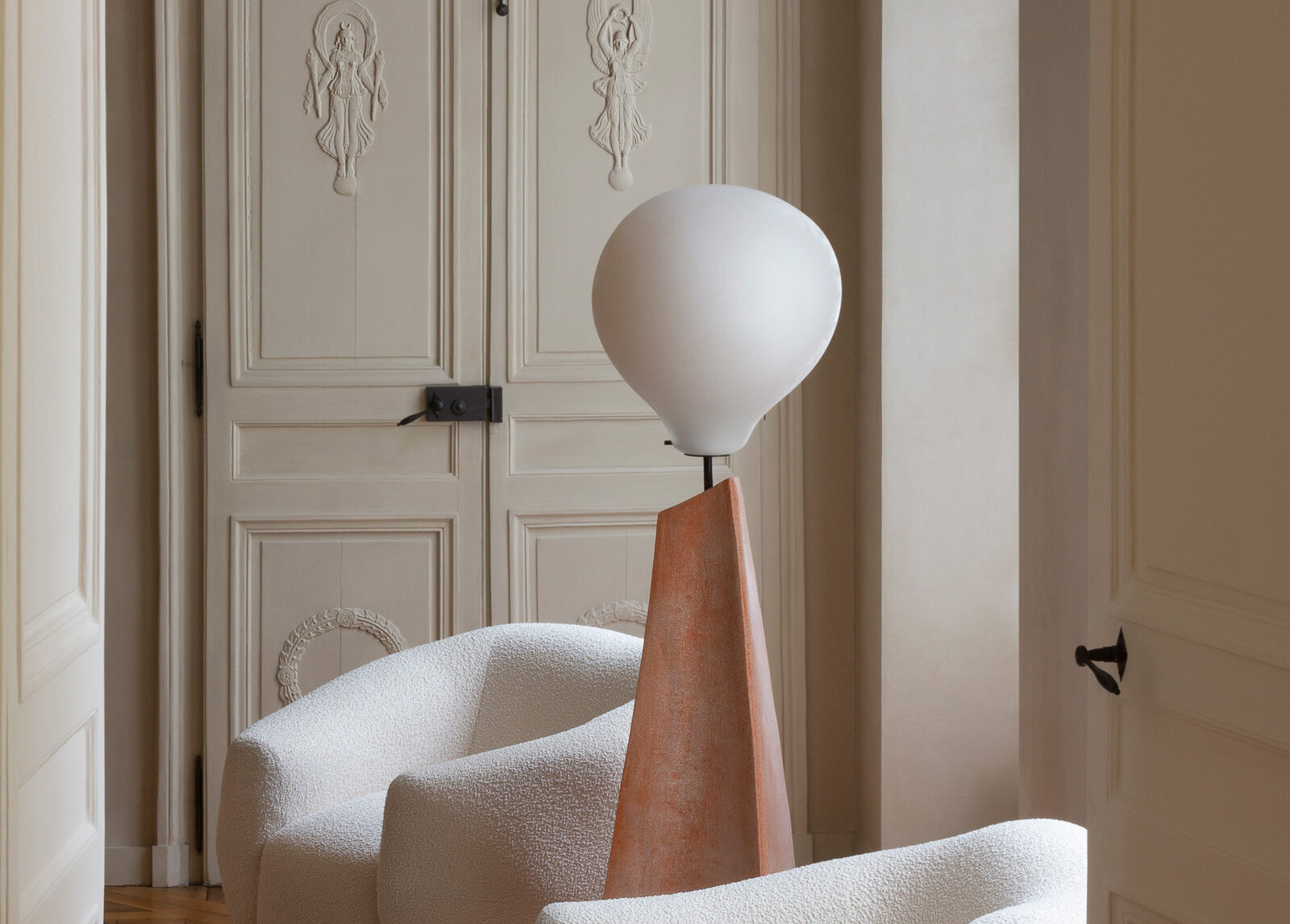Pierre Yovanovitch grew up in Nice, France to an industrialist Yugoslavian father and a French mother. His mother’s family lived in Algeria until its independence, and his father’s family emigrated from Serbia. Pierre Yovanovitch would later credit the fact that he grew up with very few family heirlooms as inspiration for creating “his own space and my own legacy.”
He grew up playing the piano as a child and attended the Nice Conservatoire, a formative aspect of his love of music. At the age of twenty, he discovered the opera when he attended a recital by Jessye Norman, performing Strauss’s Four Last Songs at the Salle Pleyel. He was seized with passion and has credited opera as a source of inspiration ever since.
After graduating from high school in Nice, and attending business school in Paris, Pierre Yovanovitch was about to begin his military service when he met Pierre Cardin who offered him an apprenticeship.
Pierre Yovanovitch worked for Cardin for eight years as a menswear license manager for Benelux, and then as a designer for his menswear collections. It was then that he developed a passion for shape and form.
Pierre Yovanovitch learned from Pierre Cardin’s sense of geometry, color, pattern, volumes, angles and curves. He refers to him as an “architect of clothing,” as Pierre Cardin instilled within him an eye for architecture. He reinforced Yovanovitch’s belief that creating, asserting one’s style, a thirst to learn and discover, constant questioning and a lot of hard work and perseverance were the key to success.
After eight years designing men’s prêt-à-porter for Pierre Cardin, Yovanovitch launched his role as an interior designer.
Pierre Yovanovitch set up his practice soon after transforming his first Parisian apartment over two decades ago. One thing led to another and he was asked to decorate flats for some friends, and then friends of friends, and so it evolved.
Historic Design
From the early days of his practice, Pierre Yovanovitch drew inspiration from the design movement, “Swedish Grace” – of which Axel Einar Hjorth and Gunnar Asplund were central figures in the 1920s – as well as early 20th century American design – particularly Paul László, Terrence Harold Robsjohn-Gibbings, James Mont and Harvey Probber. These influences combined with his knack for whimsy and storytelling established his aesthetic approach.
When Pierre Yovanovitch was born, his father gave his mother a Swedish bronze sculpture from the 1920s, depicting a young woman carrying a child in her arms. Pierre Yovanovitch never parted with it. Rigor, balance, curves, depth of materiality were characteristics of the pieces of furniture from this era. They were often very simplistic pieces with an organic, raw quality like pine tree while also there were extremely sophisticated elements to them too.
Mid-century American designers knew how to overcome convention: steel, cork, ceramic, wood in numerous editions and variations. For example, Paul Frankl’s cork and oak coffee table. This period in American design has a lot of parallels to the interiors Pierre Yovanovitch create: he draws inspiration from the strength and authenticity of designs with almost architectural perfection, an apparent simplicity in the statement, personality, elegance, a touch of originality without ostentation or arrogance and an exactitude that is timeless.
Pierre Yovanovitch’s other long standing inspirations, include: French interior designers of the 20th century, such as Jean-Michel Frank, Pierre Chareau and Jean Royère, and the great architects of the 20th and 21st centuries (Le Corbusier, Robert Mallet-Stevens, Walter Gropius, Adolf Loos and, more recently, John Pawson, Tadao Ando and Herzog & de Meuron, Renzo Piano, Frank Lloyd Wright, and Frank Gehry, among others).
Contemporary Art
Central to his interior work is Yovanovitch’s passion for contemporary art. An avid collector himself, Yovanovitch incorporates contemporary works along with commissioning established and emerging artists to create on-site works. He regularly calls on artists such as: Claire Tabouret, Tadashi Kawamata, Alicja Kwade, Johan Creten, Daniel Buren, Giulia Andreani, Francesco Clemente, to name a few.
As an admirer of 20th-century modernism, Pierre Yovanovitch has an understanding of the galleries and auction houses. His first clients were also collectors which led him to incorporate contemporary art as a part of his decorative projects. For Yovanovitch, art is inseparable from a project, because it’s what gives it that extra touch of soul. In his opinion, art is essential to any decoration, it’s an essential part of life, the key to personalizing a space. Contemporary art, compared to classical art, has elements of radicalism, controversy and meaning that change everything in the room.
Often Pierre Yovanovitch works with artists to create site-specific works as the focal point of his interiors such as Richard Nonas, Yan Pei-Ming, Claire Tabouret, Xie Lei and Jeremy Desmester to name just a few. He uses these works to help bring character to a space and to set the tone of the property. Art breathes character and poetry into a space.
Storytelling
Following Yovanovitch’s long standing love of the opera, the subject of narration is very close to his work. Whether it’s following the unique storyline of his client’s daily lives or working on the set design of Rigoletto Opera, he uses this narrative to drive the creative aspect of his work.
Pierre Yovanovitch looks for a common thread to tell a story and provoke an encounter between a place and a client. When the opportunity came about to work with Vincent Huguet on the Basel Opera’s production of Rigoletto in January 2023, it was a dream come true for Yovanovitch. There’s an obvious link between telling a story and designing a space which he aims to transpose into his residential work.
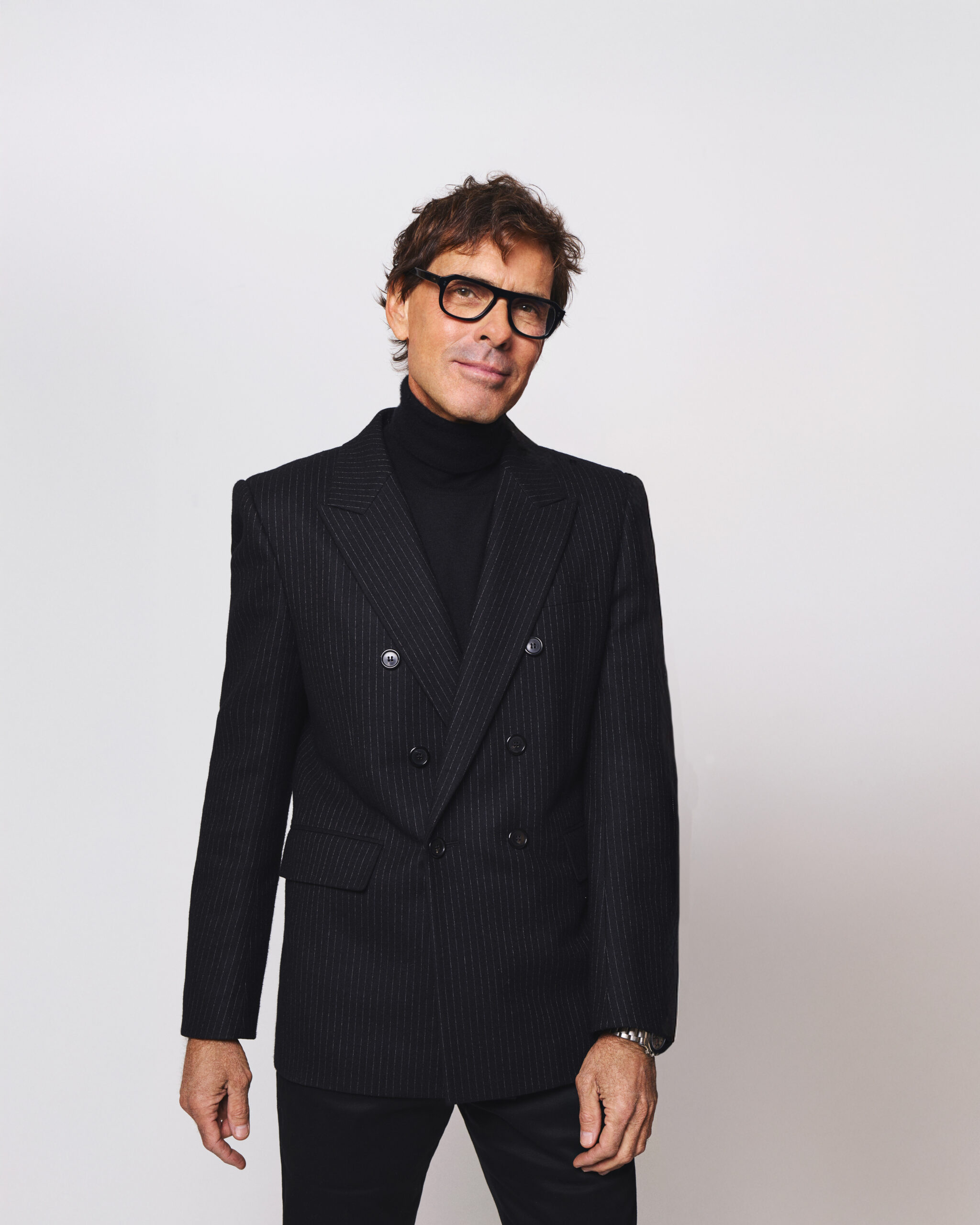
Pierre Yovanovitch’s own home, Château de Fabrègues, is located on the northern edge of the Var region in Provence. It was constructed in the early 17th century by its namesake, the Fabrègues family. The property and its surrounding nature is something Pierre Yovanovitch cites often as inspiration for his work and choice of raw material choices.
After purchasing the home in 2009, Pierre Yovanovitch began extensive renovations on the structure of the home while maintaining its historical integrity. Today, the chateau serves as a platform for the designer’s creative expression – featuring a number of site-specific contemporary art commissions – as well as an embodiment of the designer’s approach to interior architecture.
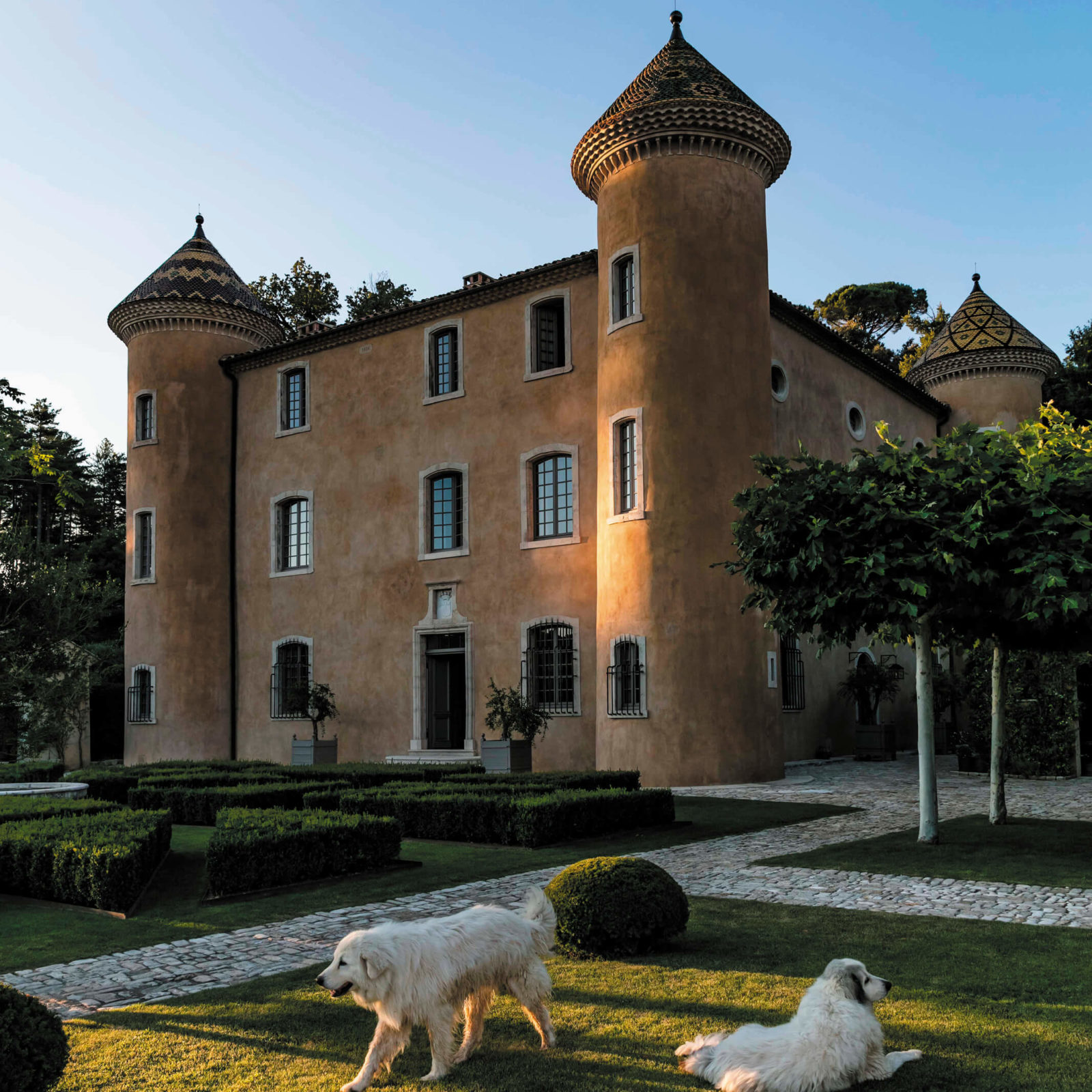
Pierre Yovanovitch Mobilier was established by Pierre Yovanovitch in 2021, two decades after founding his interior architecture practice. Known for his haute couture aesthetic, the brand combines the designer’s made-to-measure approach with craftsmanship, materiality and sustainable sourcing efforts to offer luxury furniture and lighting to the wider public.
Evolving from Pierre Yovanovitch’s experience creating custom luxury design works for his interiors, and following the launch of his two furniture collections debuted through R & Company gallery in New York (2017 and 2019), Pierre Yovanovitch Mobilier focuses on locally and sustainably sourced wood, natural fibers, hand-blown glass and organic, non-toxic adhesives.
Pierre Yovanovitch Mobilier works with artisans in France and Switzerland who utilize traditional crafting techniques.
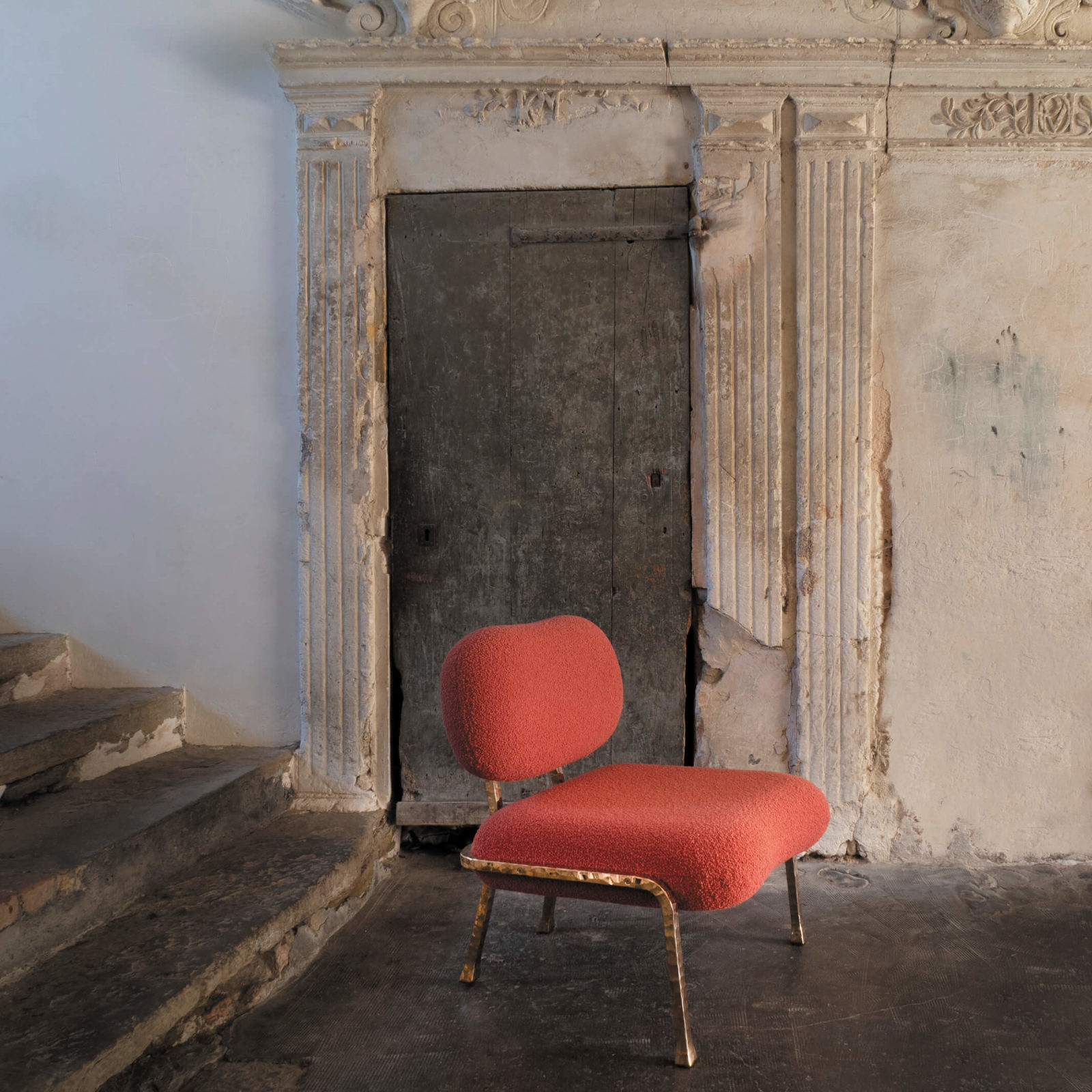
Juin – 2025
Mai – 2025
Avril – 2025
2025 – Mars
2025 – February
2025 – January
Architectural Digest, United States
2024 – December
Architectural Digest, United States
2024 – November
2024 – October
World of Interiors, United Kingdom
Les Échos Série Limitée, France
2024 – September
Financial Times, United Kingdom
2024 – August
2024 – July
2024 – June
Architectural Digest, United States
2024 – May
2024 – April
Vogue Living Australia, Australia
2024 – March
Australian Financial Review, Australia
Vogue Living Australia, Australia
2024 – February
2024 – January
Architectural Digest Collector, France
2023 – December
2023 – November
2023 – October
2023 – September
2023 – August
2023 – July
2023 – June
2023 – May
2023 – April
Architectural Digest Collector, France
2023 – March
2023 – February
2023 – January
Corriere della Sera / Living, Italy
2022 – December
Architectural Digest US, Spain, Italy, France, Germany
2022 – November
2022 – October
2022 – September
2022 – July
2022 – June
2022 – May
2022 – April
Les Echos Série Limitée, France
Le Goût de M podcast, M Le Monde, France
2022 – March
2022 – January
Architectural Digest Collector France
2021 – December
2021 – November
Milk Décoration Hors-série, France
2021 – October
Les Echos Série Limitée, France
2021 – September
2021 – August
2021 – July
2021 – June
2021 – May
2021 – April
Architectural Digest, Hors-série spécial Décoration, France
2021 – March
2021 – February
Architectural Digest, France, Hors-série Décoration
2021 – January
Connect with us for updates on Pierre Yovanovitch furniture, new projects and events
